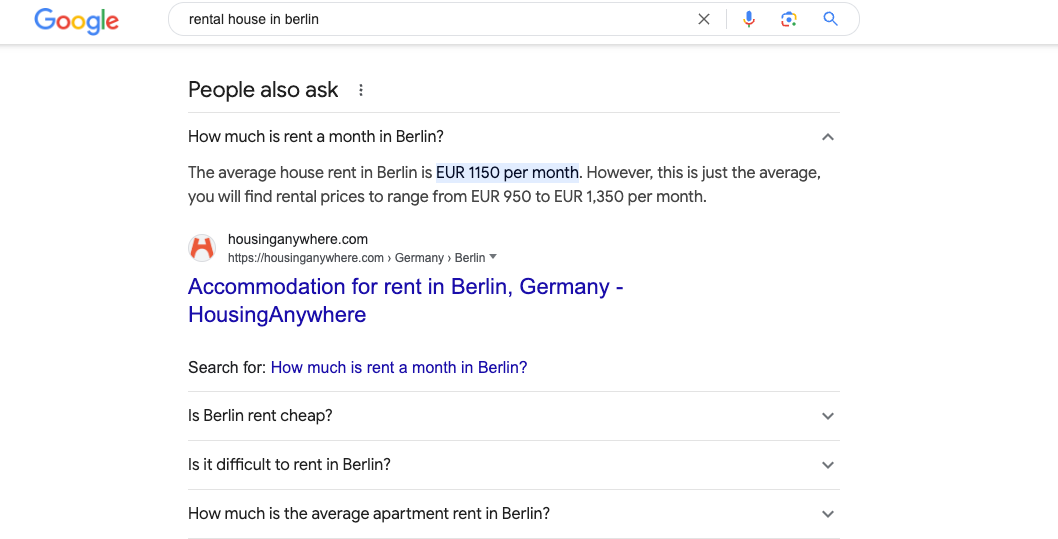Schema Markup for Real Estate: Enhancing Visibility and Attracting Traffic
The real estate industry faces a unique challenge: standing out in an oversaturated online market. It’s not just about listing properties anymore; it’s about making them visible and attractive to potential buyers and tenants surfing the vast expanse of the internet. Enter the world of Schema Markup – a powerful yet often overlooked tool in the arsenal of real estate SEO strategies.
This article is designed to demystify the concept of schema markup and provide practical insights on how it can be a game-changer for your real estate website. Whether you’re a seasoned realtor, a new entrant in the market, or a digital marketer aiming to boost real estate listings, understanding and implementing schema markup can significantly elevate your online presence. From enhancing search engine rankings to improving user experience, schema markup acts as a bridge between your website content and the way search engines interpret it.
Join us as we delve into the intricacies of Schema Markup for Real Estate, exploring strategies and practical applications that will transform your online listings and attract the traffic you desire. Get ready to unlock the potential of structured data and give your real estate business the competitive edge it deserves in the digital realm.
Strategies for Real Estate SEO
A multifaceted approach is essential to achieve success in real estate SEO.
- Begin with local keyword optimization, targeting terms that resonate with your audience and reflect specific locations and property features.
- Content plays a pivotal role; update your site regularly with insightful articles about market trends, neighborhood features, and property-buying tips. This engages visitors and establishes your site as an authoritative source in the real estate domain.
- Implementing schema markup is the key to taking your SEO efforts to the next level. It helps organize and present your website’s content in a way easily interpretable by search engines. These actions lead to enhanced visibility in search results and attract more targeted traffic. Combining these strategies ensures your real estate website ranks higher and reaches the right audience effectively.
How to Use Structured Data on Real Estate Sites
Structured data is crucial in optimizing real estate websites for search engines. It involves categorizing and labeling content so search engines can understand and display it more effectively. For instance, RealEstateListing schema allows for detailed descriptions of properties, including features, prices, and locations. This clarity improves search engine rankings and ensures potential buyers find the most relevant listings.
By implementing structured data, you can enable rich snippets in search results, which are visually enhanced and provide quick, relevant information to users. This not only improves click-through rates but also enhances the overall user experience. Structured data ensures that your listings are accurately presented in search results, attracting a more targeted audience and potentially increasing inquiries and conversions.
RealEstateListing Schema Markup
RealEstateListing schema is vital for effectively presenting property listings on real estate websites. It allows for a detailed display of property attributes such as location, price, size, and special features in a structured format. This structured approach enables search engines to display rich, detailed information directly in search results, significantly enhancing visibility and attracting potential buyers.
By meticulously detailing each property, you cater to your audience’s specific needs and preferences. This improves the likelihood of matching properties with the right buyers and boosts the overall user experience. The enhanced visibility leads to higher click-through rates and better engagement, positioning your listings more prominently in search results and attracting a more targeted audience.
Here you can take a look at sample RealEstateListing schema markup:
<script type=”application/ld+json”>
{
“@context”: “https://schema.org”,
“@type”: “RealEstateListing”,
“url”: “https://realestatecompany.com”,
“name”: “Real Estate Company,
“description”: “Real Estate Company Great Property”,
“datePosted”: ” 2023-12-20T10:00:00+01:00″,
“leaseLength”: {
“@type”: “QuantitativeValue”,
“value”: 12,
“unitText”: “months”
},
}
</script>
LeaseLength Schema
The LeaseLength schema is particularly important for listings involving rental properties. It allows you to explicitly define the terms of the lease, including duration and conditions. This level of detail is invaluable for potential renters looking for specific lease terms. By providing this information upfront, you enhance the transparency and trustworthiness of your listings.
Clear and detailed lease information is not only beneficial for users but also for search engine optimization. It helps in accurately ranking your listings in search results, targeting users specifically looking for rental properties with certain lease lengths. This specificity in your listings can lead to better matching with potential tenants, increasing the efficiency of the rental process and improving user satisfaction.
SingleFamilyResidence Schema Markup
The SingleFamilyResidence schema is designed for standalone residential properties and is a powerful tool in highlighting their unique features. By utilizing this schema, you can provide detailed information about the property, including the number of rooms, property size, specific location, and additional amenities like gardens or pools.
This targeted approach helps distinguish your single-family residence listings and enhances their visibility in search results. Accurate and comprehensive schema implementation ensures that your properties stand out and reach the right audience, potentially leading to increased engagement and inquiries. It’s particularly effective in attracting families or individuals seeking this type of property, as it provides them with all the necessary information to make an informed decision.
Sample SingleFamilyResidence Schema code in JSON-LD format:
<script type=”application/ld+json”>
{
“@context”: “https://schema.org”,
“@type”: “SingleFamilyResidence”,
“name”: “1331 St George Street – Family House”,
“description”: “Great opportunity to own this 2500 sqft originally built in 1988 family home with 4 bedroom, 3 bathroom. which was RENOVATED IN 2014:( New Windows, New Bathroom, New Hardwood Floors, Air Condition, New Kitchen, etc.)”,
“numberOfRooms”: 4,
“occupancy”: {
“@type”: “QuantitativeValue”,
“minValue”: 1,
“maxValue”: 4
},
“floorSize”: {
“@type”: “QuantitativeValue”,
“value”: 3000,
“unitCode”: “FTK”
},
“leaseLength”: {
“@type”: “QuantitativeValue”,
“value”: 12,
“unitText”: “months”
},
“numberOfBathroomsTotal”: 2,
“numberOfBedrooms”: 2,
“permittedUsage”: “Perfectly suitable for a family with two kids.”,
“petsAllowed”: “Only cats are allowed”,
“yearBuilt”: 2012,
“address”: {
“@type”: “PostalAddress”,
“addressCountry”: “US”,
“addressLocality”: “Cincinnati”,
“addressRegion”: “Ohio”,
“postalCode”: “45202”,
“streetAddress”: “311 Elm Street Ste 270 #1763”
},
“telephone”: “+1-513-991-9496”
}
</script>
Event Schema
Event Schema is invaluable for promoting real estate events such as open houses, auctions, or community tours. By including specific details like dates, locations, and event descriptions, you can significantly enhance the visibility of these events in search results. This schema type is especially effective in attracting potential buyers and investors to your events.
The increased visibility boosts attendance and contributes to your website’s overall SEO performance. Active engagement and regularly updated event listings demonstrate the relevancy and dynamism of your real estate business.
Product Schema
Product Schema is particularly useful for highlighting new property developments or special features of your listings. This schema lets you detail innovative aspects such as design elements, unique amenities, or eco-friendly materials. By targeting niche markets interested in these specific features, you can differentiate your listings and attract a specific segment of the market.
This approach not only enhances the perceived value of your properties but also adds a unique selling point to your listings. The detailed and structured presentation of these features makes your properties more appealing and can lead to higher interest and engagement from potential buyers, especially those looking for something beyond the ordinary in the real estate market.
FAQ Schema
FAQ Schema is a powerful tool for enhancing your real estate website by providing structured and concise answers to common queries. It improves the user experience by offering immediate, authoritative information and addressing potential clients’ concerns. An effective FAQ section can significantly increase the time visitors spend on your site, reducing bounce rates and improving overall engagement.
By providing valuable content and answers to frequently asked questions, your website can improve its SEO performance. Search engines favor sites that are user-friendly and informative. A well-structured FAQ section can make your website more visible in search results, increasing your reach and accessibility to your target audience.
Here is a great example how to use FAQ schema efficiently on Google SERP:



